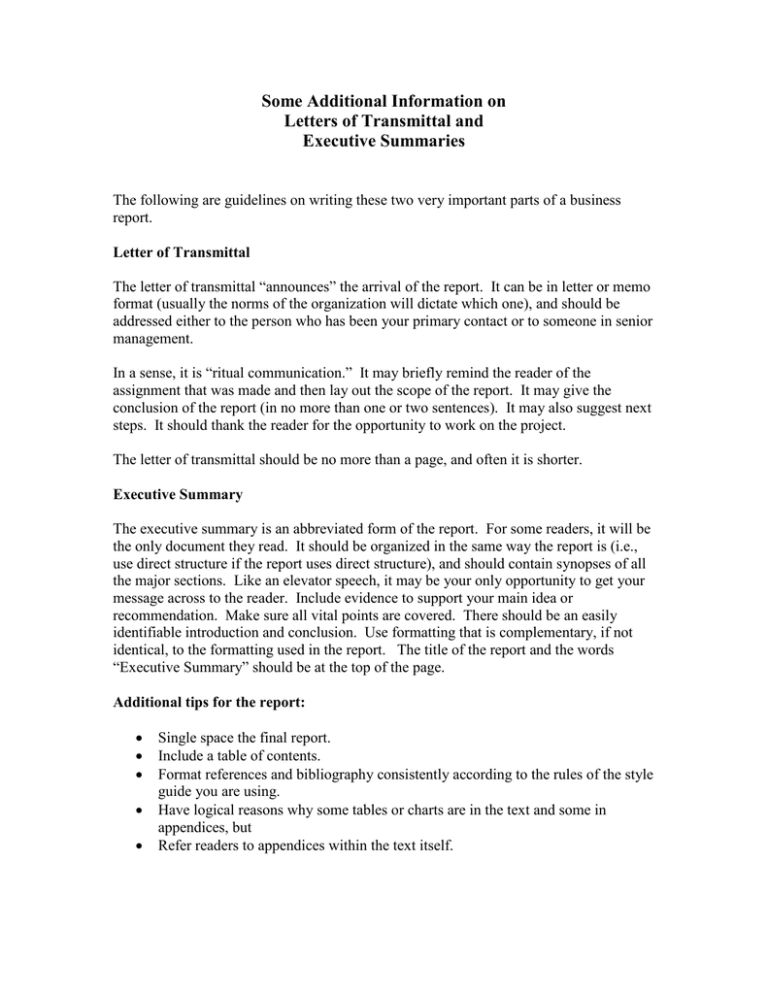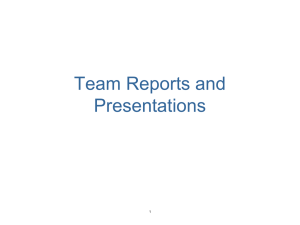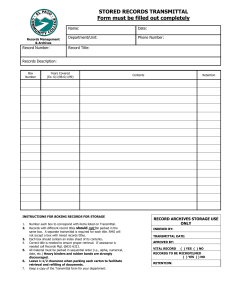Some Additional Information on Letters of Transmittal and Executive Summaries
advertisement

Some Additional Information on Letters of Transmittal and Executive Summaries The following are guidelines on writing these two very important parts of a business report. Letter of Transmittal The letter of transmittal “announces” the arrival of the report. It can be in letter or memo format (usually the norms of the organization will dictate which one), and should be addressed either to the person who has been your primary contact or to someone in senior management. In a sense, it is “ritual communication.” It may briefly remind the reader of the assignment that was made and then lay out the scope of the report. It may give the conclusion of the report (in no more than one or two sentences). It may also suggest next steps. It should thank the reader for the opportunity to work on the project. The letter of transmittal should be no more than a page, and often it is shorter. Executive Summary The executive summary is an abbreviated form of the report. For some readers, it will be the only document they read. It should be organized in the same way the report is (i.e., use direct structure if the report uses direct structure), and should contain synopses of all the major sections. Like an elevator speech, it may be your only opportunity to get your message across to the reader. Include evidence to support your main idea or recommendation. Make sure all vital points are covered. There should be an easily identifiable introduction and conclusion. Use formatting that is complementary, if not identical, to the formatting used in the report. The title of the report and the words “Executive Summary” should be at the top of the page. Additional tips for the report: • • • • • Single space the final report. Include a table of contents. Format references and bibliography consistently according to the rules of the style guide you are using. Have logical reasons why some tables or charts are in the text and some in appendices, but Refer readers to appendices within the text itself. MIT OpenCourseWare http://ocw.mit.edu 15.279 Management Communication for Undergraduates Fall 2012 For information about citing these materials or our Terms of Use, visit: http://ocw.mit.edu/terms.


